The Environmental Impact of Mismanaged Waste Disposal
- September 17, 2024
- 0 comment
Improper waste disposal significantly harms the environment, disrupting ecosystems and endangering wildlife and human health. Mismanaged waste can contaminate soil, pollute water sources, and worsen air quality. These environmental issues highlight the urgent need for better waste management practices to minimize the harmful effects of trash and protect our planet.
Types of Mismanaged Waste
Household Waste
Improper handling of household waste leads to severe environmental challenges. Mixing recyclables with general trash contaminates materials, making effective recycling difficult. Hazardous items like batteries, chemicals, and electronics often end up in landfills, leaching toxins into soil and water. These harmful effects highlight the need for specialized disposal methods to prevent environmental contamination.
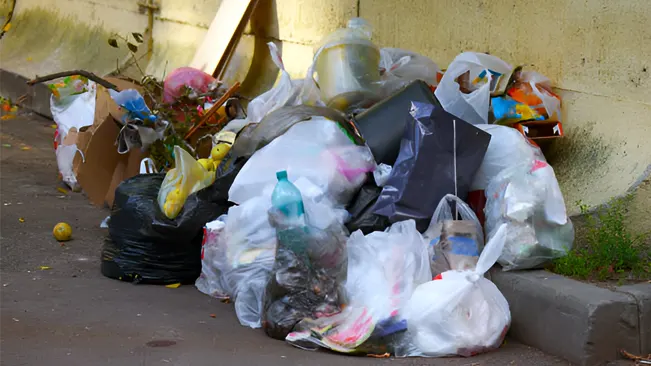
Food waste and organic materials also contribute to landfill overflow and methane emissions when not properly managed. Simple steps like composting and separating organic waste can significantly reduce greenhouse gases and landfill dependency. Addressing the environmental impact of household waste is essential to protect local ecosystems and combat climate change.
Industrial Waste
Industrial waste poses unique challenges, particularly with hazardous and non-hazardous byproducts. Hazardous waste, such as chemicals and heavy metals, can severely damage ecosystems and harm human health if not properly handled. These toxic materials often contaminate soil and water, causing long-term environmental and health issues for nearby communities.
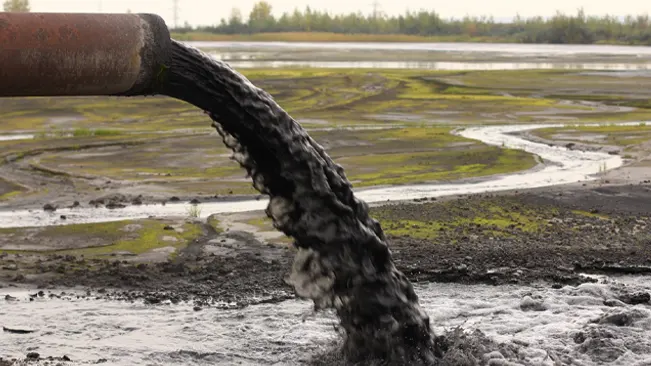
Non-hazardous industrial waste, like construction debris and packaging, may seem less harmful but still contributes to pollution and resource depletion. Without proper management, this waste can overwhelm landfills and harm ecosystems. Implementing effective disposal and recycling practices is critical for reducing the environmental impact of industrial waste and ensuring sustainable industrial operations.
Electronic Waste
Electronic waste, or e-waste, presents significant environmental challenges due to its complex mix of valuable metals and toxic substances. Components like lead, mercury, and cadmium can leach into soil and water if e-waste is improperly discarded, posing serious risks to human health and wildlife. Recycling e-waste through specialized processes is essential to recover valuable materials like gold and copper while preventing environmental contamination.
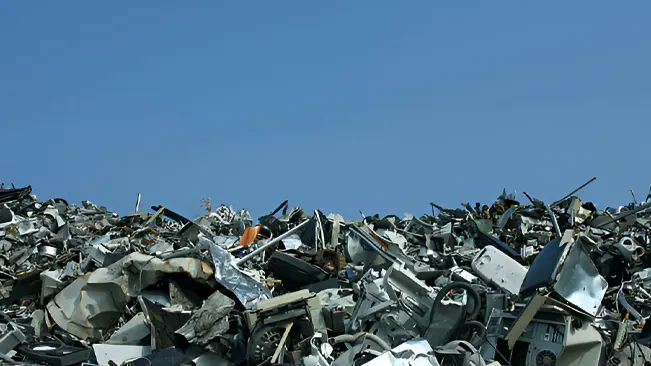
The rapid pace of technological advancement exacerbates the issue, as obsolete devices contribute to increasing volumes of unmanaged waste. To address these effects, implementing robust recycling programs and encouraging responsible e-waste disposal are critical. These steps can significantly reduce the harmful impact of e-waste and promote sustainable technology use.
Environmental Consequences
Soil Contamination
Soil contamination occurs when hazardous waste releases harmful chemicals into the ground. Leachate, a toxic liquid formed as water passes through waste, often carries pollutants like heavy metals, pesticides, and industrial chemicals into the soil. This alters soil composition, reduces fertility, and can persist for years, harming agricultural productivity and introducing toxins into the food chain.
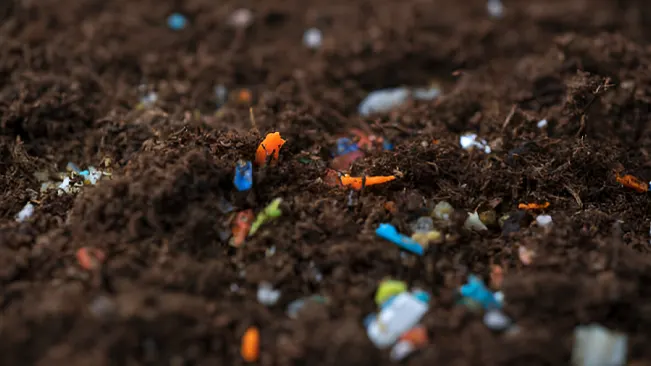
Pollutants from chemical runoff also degrade soil health by disrupting nutrient cycles and microbial activity essential for plant growth. These contaminants hinder organic matter decomposition and diminish soil quality, threatening both natural ecosystems and agriculture. Addressing soil contamination is vital to restoring soil health and protecting food security.
Water Pollution
Improper waste disposal severely impacts water bodies like rivers, lakes, and groundwater. Contaminants such as heavy metals, chemicals, and harmful microorganisms often enter water sources through leachate or runoff, causing widespread pollution. This disrupts aquatic ecosystems, harming fish and other organisms while destabilizing food chains.
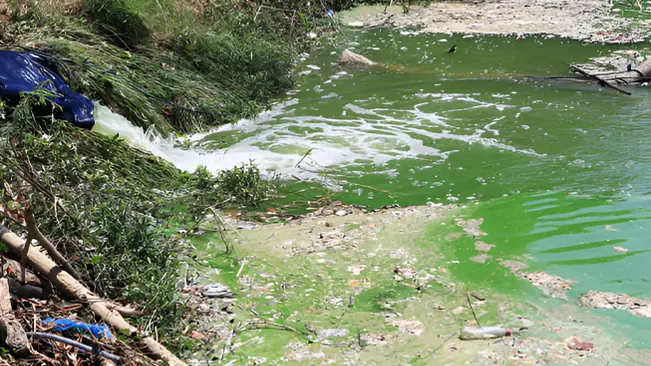
For humans, polluted water poses serious health risks, including waterborne diseases and long-term exposure to toxins. Contaminated water used for irrigation can introduce hazardous substances into crops, affecting food safety and public health. Addressing waste management issues is crucial to safeguarding water quality and protecting ecosystems and communities.
Air Quality
The improper disposal and burning of waste, particularly plastics and synthetic materials, release harmful pollutants into the air. Toxic emissions such as dioxins, furans, and volatile organic compounds contribute to respiratory problems and other health risks for nearby communities. Additionally, organic waste decomposition in landfills generates methane, a powerful greenhouse gas that exacerbates climate change.
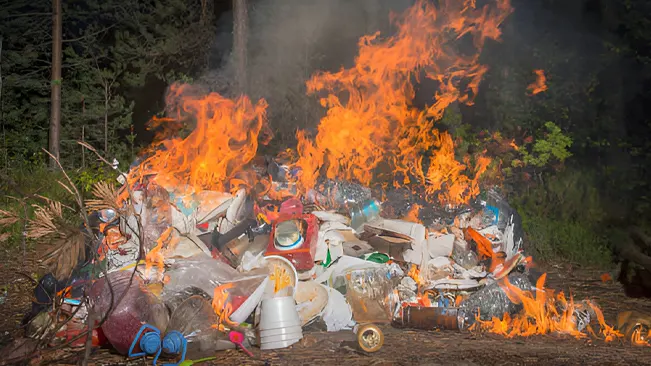
Waste-related emissions also degrade air quality, causing smog and other pollution that affects both urban and rural areas. Long-term exposure to polluted air increases the risk of respiratory and cardiovascular diseases, underscoring the need for better waste management practices to protect public health and the environment.
Wildlife and Ecosystems
Mismanaged waste poses significant risks to wildlife and natural ecosystems. Animals often ingest or become entangled in waste, leading to injuries or death. Marine life is particularly vulnerable, as plastic debris can be mistaken for food, causing blockages, starvation, or toxic exposure. On land, hazardous substances in waste and habitat disruption further endanger wildlife.
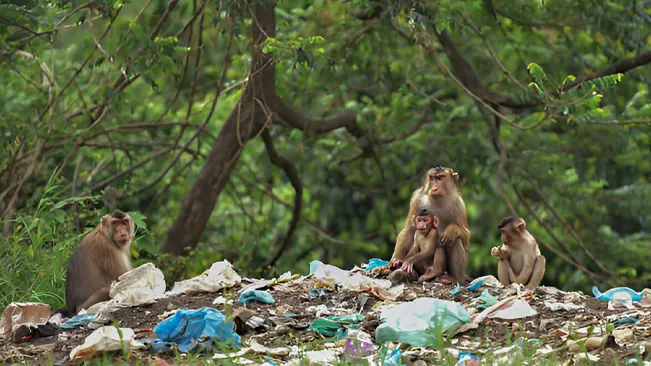
Waste pollution also disrupts ecosystems by altering natural processes. Pollutants in soil and water harm plant growth and upset the balance of local environments. Habitat loss and changing conditions reduce biodiversity, threatening species unable to adapt. Addressing these issues is vital for preserving ecosystems and protecting wildlife.
Health Implications
Human Health Risks
Improper waste disposal poses significant health risks to humans through contaminated water and air. Polluted water, tainted by leachate or runoff, often carries harmful pathogens like bacteria, viruses, and parasites, leading to diseases such as cholera, dysentery, and hepatitis. Additionally, hazardous chemicals in water can cause long-term issues, including cancer, reproductive problems, and neurological disorders.

Air pollution from burning waste or decomposing organic matter releases toxic gases and particulate matter, worsening respiratory conditions like asthma and COPD. Prolonged exposure to these pollutants is linked to severe health outcomes, including heart disease, lung cancer, and premature mortality. Vulnerable groups, such as children, the elderly, and those with existing health conditions, face heightened risks, emphasizing the need for proper waste management to protect public health.
Community Impact
Improper waste disposal heavily affects local communities, particularly those near landfills, waste facilities, or polluted areas. Residents in these areas often face environmental degradation, unpleasant odors, and increased health risks, resulting in a lower quality of life. These conditions contribute to higher illness rates and diminished well-being.
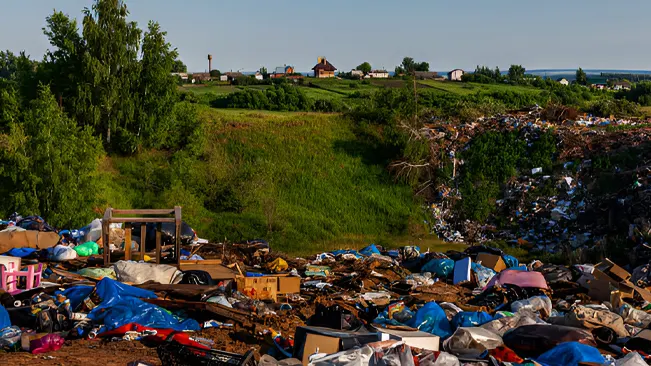
The impact is even more severe in vulnerable communities, such as low-income or marginalized groups, which often lack resources to address health concerns or improve waste management. Waste-related hazards can also reduce property values and limit economic opportunities, perpetuating poverty and environmental injustice. Tackling these challenges requires targeted interventions to ensure equitable environmental and health protections for all.
Solutions and Best Practices
Improved Waste Management Systems
Effective waste management is essential for reducing the environmental impact of waste. A key strategy involves sorting and segregating waste at its source, separating recyclables, compostables, and hazardous materials from general waste. This approach increases recycling rates and significantly reduces the volume of waste sent to landfills. Comprehensive recycling programs for plastics, metals, glass, and other materials ensure valuable resources are reclaimed and reused efficiently.
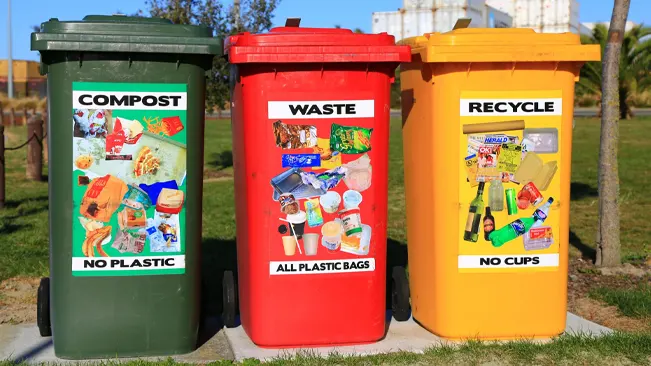
Beyond recycling, advanced disposal methods like waste-to-energy systems offer sustainable solutions by converting waste into electricity or heat, minimizing landfill use. Composting organic waste, such as food scraps and yard waste, creates nutrient-rich compost that improves soil health and reduces methane emissions. By adopting these technologies and practices, communities can efficiently manage waste, lower environmental pollution, and conserve precious natural resources.
Policies and Regulations
Strong policies and regulations are essential for effective waste management and environmental protection. Clear guidelines on waste reduction, recycling, and disposal help ensure consistent practices. Regulations such as mandatory waste segregation, restrictions on single-use plastics, and proper handling of hazardous waste hold individuals and businesses accountable while promoting environmental conservation.
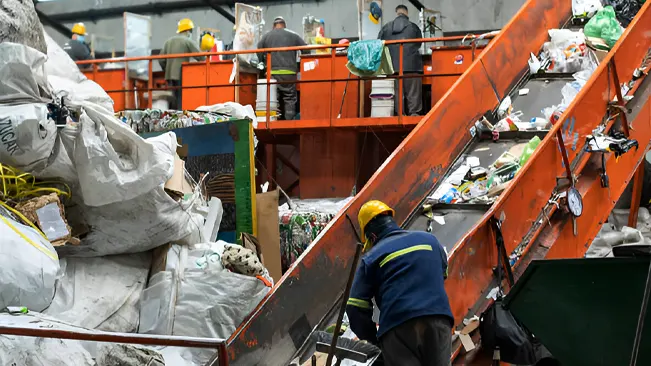
To support these efforts, policies should focus on building waste management infrastructure, including recycling facilities and composting programs. Financial incentives like subsidies or tax breaks can encourage eco-friendly practices among households and businesses. Regular monitoring and reporting systems are vital for tracking progress and identifying improvement areas. Enforcing these policies effectively is key to achieving sustainable waste management and reducing environmental impact.
Community Involvement
Public awareness and active community participation are crucial for minimizing the environmental impact of waste. Educational programs and campaigns help inform residents about the importance of waste reduction, recycling, and proper disposal. By understanding the health and environmental consequences of improper waste management, individuals are more likely to adopt responsible habits and support waste reduction initiatives.

Community-driven activities like neighborhood clean-ups, recycling drives, and composting workshops build a sense of shared responsibility and encourage sustainable practices. Local organizations and volunteers play an essential role in advocating for better waste management and fostering long-term change. Involving community members in decision-making processes and seeking their feedback ensures waste management programs are effective and tailored to local needs.
Conclusion
The environmental impact of improper waste disposal is extensive, affecting soil, water, air, and ecosystems on multiple levels. Mismanaged waste contaminates soil with harmful chemicals, reducing fertility and threatening agricultural productivity. Water pollution from leachate and runoff endangers aquatic ecosystems and human health, while air pollution from waste emissions contributes to respiratory issues and climate change. Wildlife and ecosystems also suffer from pollution and habitat disruption, leading to reduced biodiversity and ecological imbalance. Addressing these challenges through improved waste management systems, strong policies, and active community involvement is essential to safeguarding our environment for future generations.
FAQs
- What is mismanaged waste disposal?
Mismanaged waste disposal refers to the improper handling, sorting, and disposal of waste materials. This can include mixing recyclables with general trash, improper disposal of hazardous materials, and inadequate management of organic and electronic waste. Such practices can lead to environmental pollution and health hazards. - How does improper waste disposal affect soil?
Improper waste disposal can lead to soil contamination through the leaching of harmful chemicals and heavy metals into the ground. This contamination can reduce soil fertility, harm plant growth, and potentially enter the food chain, impacting agricultural productivity and ecosystem health. - What are the consequences of waste pollution on water sources?
Waste pollution can severely impact water sources by introducing pollutants such as heavy metals, chemicals, and pathogens into rivers, lakes, and groundwater. This contamination can disrupt aquatic ecosystems, harm aquatic life, and pose risks to human health through polluted drinking water and food supplies. - How does waste disposal affect air quality?
Burning waste, especially plastics and synthetic materials, releases toxic gases and particulate matter into the air. This can contribute to air pollution, which affects respiratory health and contributes to climate change. Decomposing organic waste in landfills also produces methane, a potent greenhouse gas. - What impact does mismanaged waste have on wildlife and ecosystems?
Mismanaged waste can threaten wildlife through ingestion or entanglement in waste materials, leading to injury or death. It can also disrupt ecosystems by altering natural processes and reducing biodiversity. Pollutants from waste can harm plant and animal life, leading to imbalanced ecosystems. - What are some effective strategies for improving waste management?
Effective waste management strategies include enhancing waste sorting and recycling programs, implementing waste-to-energy technologies, and promoting composting of organic waste. Improving waste management systems involves both technological advancements and better community practices. - How do policies and regulations contribute to better waste management?
Policies and regulations set standards for waste reduction, recycling, and proper disposal. Effective policies can include mandates for waste segregation, restrictions on single-use plastics, and guidelines for hazardous waste handling. Enforcement of these regulations ensures compliance and helps reduce environmental impact. - Why is community involvement important in waste management?
Community involvement is crucial for effective waste management as it fosters public awareness and encourages responsible behavior. Educational programs, community clean-up events, and local advocacy help promote sustainable practices and support waste management initiatives. - What can individuals do to reduce the environmental impact of their waste?
Individuals can reduce their waste impact by practicing proper waste segregation, recycling materials, composting organic waste, and reducing single-use plastics. Supporting policies and community programs aimed at improving waste management also contributes to a more sustainable environment. - How can businesses contribute to better waste management practices?
Businesses can contribute by adopting waste reduction practices, improving recycling efforts, and implementing sustainable packaging solutions. Engaging in corporate social responsibility initiatives and complying with waste management regulations can further enhance their environmental stewardship.

Joel Cunningham
Forestry AuthorI'm Joel Cunningham, an expert in pruning and weed management with over a decade of experience. My skills are rooted in formal training and extensive practice, focusing on advanced pruning techniques and efficient weed control. I'm known for my quality work, precision, and deep understanding of plant health and soil dynamics. My contributions extend to educational initiatives where I share sustainable practices and advice, establishing myself as a reliable and authoritative figure in the gardening community.

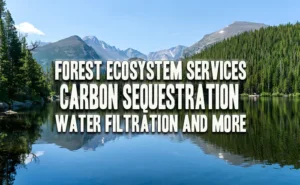



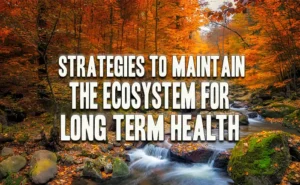
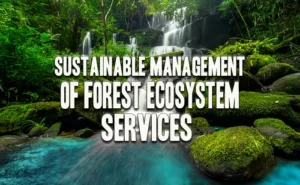

Leave your comment